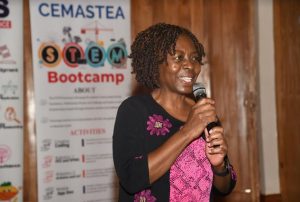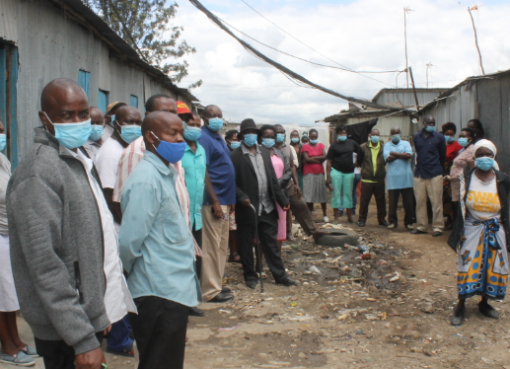Kenyans have been encouraged to take their children for coding, programming, and robotics lessons to enable them to compete effectively in the global market.
Jacinta Akatsa, the Chief Executive Officer (CEO) of the Centre for Mathematics, Science, and Technology Education in Africa (CEMASTEA), said the institution has been offering coding and programming skills to learners from grade three to form four since the year 2022 and encouraged parents to take their children for lessons at the institution during holidays.

She said the programme done through the Science, Technology, Engineering, and Mathematics (STEM) Boot Camp project provides an environment for young people to discover their creativity and innovation.
The CEO added that knowledge is not enough, since the true power lies in the ability to apply that knowledge to build world situations.
“I urge parents to continue bringing their children to the boot camps, which are carried out during holidays,” she encouraged, adding that the skills imparted at the camps help prepare the youth for the challenges and opportunities of this century.
The government has approved a new curriculum for primary and secondary school students that will teach coding, and Kenya is among the first group of African countries to implement the curriculum. The move will put Kenyan students on an equal footing with students in developed countries.
The inclusion of coding in CBC is in line with the government’s efforts to promote technology use through a digital literacy programme.
Akatsa said since the programme commenced, the institution has to date organised four cohorts, which have seen participants acquire skills in creative coding, robotics, mobile app development, graphics design/3D, mathematics, and science innovations.
The CEO, who was speaking during the 4th STEM Boot Camp Coding and Robotics for student participants from grade three to Form four themed ‘Igniting the Future: Inspire, Imagine, and Innovate, ‘who registered for one-week classes, said the skills were crucial as they enable students to choose their career paths.
“The skills they acquire make them logical thinkers, develop them for future readiness, and make them collaborators and digital savvy,” she said, adding that the coding, design, and programming skills they acquire also help in resilience, stress tolerance, and flexibility.
Akatsa said the experiences the students learn at the boot camps spark an interest in them to pursue STEM-related careers at the tertiary level, enhance their creativity and innovation, and promote a community of problem solvers and critical thinkers.
She thanked CEMASTEA partners, who include Universal Concept Mental Acceleration System Kenya (UCMAS), Stem Impact Centre Kenya, STEMTRIX, Start Innovation Alliance, and Steam Interactive, for supporting the boot camps and assured the institution will continue with the programme in 2024.
Mr. Makoba Kizito, the CEMASTEA Dean, Biology Department, and Coordinator, STEM, Climate Change, and Innovations Committee, lauded parents who understood the value of the activity, noting that coding has been introduced at a very early age and that this will make young people to be able to drive the future economy.
“Coding and programming are the present and future. It is the language; those who are unable will be clustered as being illiterate,” said Kizito, adding that critical thinking and problem solving are key to the Competency Based Curriculum (CBC).
He announced at the same time that the institution is working on innovating a technology that will be used to communicate with people with special needs.
CEMASTEA is a public institution under the Ministry of Education established in 2004 whose mandate is to Strengthen Mathematics and Science Education (SMASE) in both primary and secondary schools.
SMASE is a technical project between the government through the Ministry of Education and the government of Japan through JICA, which started in 1998.
The project aims at improving classroom practices for mathematics and science teachers and upgrading the capabilities of young Kenyans in mathematics and science.
CEMASTEA has expanded its activities and is now bringing on board Early Childhood Development Education teachers, junior secondary schools, teachers training colleges, principals, deputy principals, and other education stakeholders.
Present at the event were the Chief Executive Officer of UCMAS Kenya, Mr. Mayank Shah, and others.
By Bernadette Khaduli




